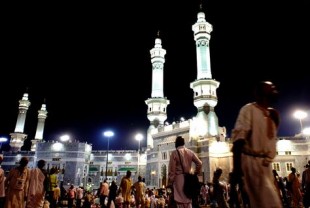

Saudi tourism shines amid MidEast slump in 2012

Saudi Arabia's tourism market was one of the world's fastest growing in 2012 despite a slump in the number of visitors to the Middle East, latest figures reveal.
According to the latest UNWTO World Tourism Barometer, the Gulf kingdom saw a 14 percent growth in tourism last year, the fifth best performer globally.
However, results in the Middle East showed a five percent decline in visitor numbers although this was better than the seven percent decline reported in 2011.
The World Tourism Organisation said the Middle East region lost an estimated 3 million international tourist arrivals in 2012 despite a clear recovery in Egypt.
It added that international arrivals in the Middle East could be flat in 2013 with forecasts of between zero to five percent growth for the year.
By region, prospects for 2013 were stronger for Asia and the Pacific (up 5-6 percent), followed by Africa (up 4-6 percent), the Americas (up 3-4 percent), Europe (up 2-3 percent) and the Middle East (0-5 percent).
The UNWTO said international tourist arrivals grew by four percent in 2012 to reach 1.035 billion.
Emerging economies (up 4.1 percent) regained the lead over advanced economies (up 3.6 percent), with Asia and the Pacific showing the strongest results.
The UNWTO also predicted that growth is expected to continue in 2013 only slightly below the 2012 level at between 3-4 percent.
With an additional 39 million international tourists, up from 996 million in 2011, international tourist arrivals surpassed 1 billion for the first time in history in 2012.
"Demand held well throughout the year, with a stronger than expected fourth quarter," the UNWTO said in a new report.
By region, Asia and the Pacific (up seven percent) was the best performer, while by sub-region South-East Asia, North Africa (both up nine percent and Central and Eastern Europe (up eight percent) topped the ranking.
“2012 saw continued economic volatility around the globe, particularly in the Eurozone. Yet international tourism managed to stay on course,” said UNWTO secretary-general, Taleb Rifai.
“Tourism is thus one of the pillars that should be supported by governments around the world as part of the solution to stimulating economic growth,” he added.